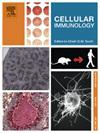造血干细胞移植的新途径:巨细胞病毒感染和HLA基因型对埃及患者嵌合状态的影响
IF 2.9
4区 医学
Q2 CELL BIOLOGY
引用次数: 0
摘要
一些研究调查了HLA等位基因与造血干细胞移植(HSCT)后巨细胞病毒(CMV)感染之间的关系。结果发现,许多HLA等位基因与CMV感染率增加有关,而其他HLA等位基因则具有抗感染的保护作用。然而,据我们所知,还没有研究调查这种关系对移植后嵌合状态的影响。先前的结果表明,巨细胞病毒的再激活或感染增加了从混合嵌合到完全嵌合(CC)的转化,这是免疫系统同时激活的结果。我们的目的是研究巨细胞病毒和某些HLA等位基因的关联及其对移植后嵌合状态的影响,并确定影响嵌合状态的其他因素。研究了165例因不同血液学适应症接受同种异体造血干细胞移植的患者。受体(R)和供体(D)均接受cmv特异性IgG和IgM血清学检测、HLA分型和嵌合分析。通过每周监测CMV DNA来评估受者的CMV感染或再激活。患者随访100天,在移植后28、60、90和100天进行嵌合分析。移植后PCR检测CMV阳性85例,阴性80例。急性移植物抗宿主病(aGvHD)在巨细胞病毒阳性患者中显著增加。多因素分析(Multivariate analysis, MVA)显示,HLA-A*2、HLA-B*14、HLA-B*41、HLA-DRB1*04和HLA-DRB1*13,以及诊断为骨髓增生异常综合征和骨髓发育不全,显著增加移植后CMV阳性的风险。HLA-DRB1*11阳性与较高的aGvHD发生率相关。移植后CMV PCR阳性表明,CMV感染/再激活与向CC转化的速度加快有关,并且这种影响与实施的调节方案或aGvHD的存在无关。此外,D+/R-移植环境与早期CC显著相关,在MVA中,CMV再激活与加速CC转化相关,而HLA-A*33、HLA-DRB1*13、HLA-DRB1*15和D - /R+移植环境与延迟CC相关,CMV感染/再激活和D+/R-移植环境与早期CC转化相关,慢性GvHD和早期嵌合与更好的总生存(OS)相关。而晚期受体年龄和HLA-DRB1*01与较低的OS相关。本文章由计算机程序翻译,如有差异,请以英文原文为准。
A novel approach to hematopoietic stem cell transplantation: The effect of CMV infection and HLA genotypes on chimerism status in Egyptian patients
Several studies have investigated the association between HLA alleles and cytomegalovirus (CMV) infection following hematopoietic stem cell transplantation (HSCT). It was found that many HLA alleles were associated with increased rate of CMV infection, while others had a protective effect against infection. However, to our knowledge no studies have investigated the effect of this relation on chimerism status post transplantation. Previous results concluded that CMV reactivation or infection increases conversion from mixed chimerism toward complete chimerism (CC) as a consequence of concomitant activation of immune system. Our aim is to study the association of CMV and certain HLA alleles and their effect on chimerism status post transplantation and identify other factors affecting chimerism status. 165 patients who underwent allogeneic HSCT for different hematological indications were studied. Both recipients (R) and donors (D) underwent serological testing for CMV-specific IgG and IgM, HLA typing, and chimerism analysis. CMV infection or reactivation was assessed in recipients through weekly monitoring of CMV DNA. Patients were followed up for 100 days where chimerism analysis was performed at 28, 60, 90, and 100 days post-transplantation. Eighty-five patients were positive for CMV by PCR post transplantation while eighty patients were CMV negative. Acute graft versus host disease (aGvHD) was significantly increased in CMV positive patients. Multivariate analysis (MVA) has indicated that HLA-A*2, HLA-B*14, HLA-B*41, HLA-DRB1*04 and HLA-DRB1*13, as well as a diagnosis of myelodysplastic syndrome and bone marrow aplasia, significantly increased the risk for CMV positivity post transplantation. HLA-DRB1*11 positivity was associated with a higher rate of aGvHD. CMV infection/reactivation as indicated by positive CMV PCR post-transplant was associated with a faster rate of conversion toward CC, and this effect was independent of the implemented conditioning regimen or the presence of aGvHD. Additionally, D+/R- transplant setting was significantly associated with early CC. On MVA, CMV reactivation was associated with acceleration of conversion toward CC, while HLA-A*33, HLA-DRB1*13, HLA-DRB1*15 and D−/R+ transplant setting were factors associated with delayed CC. In conclusion, CMV infection/reactivation and D+/R- transplant setting were associated with earlier conversion toward CC. Chronic GvHD and early chimerism were associated with better overall survival (OS), while advanced recipient age and HLA-DRB1*01 were associated with lower OS.
求助全文
通过发布文献求助,成功后即可免费获取论文全文。
去求助
来源期刊

Cellular immunology
生物-免疫学
CiteScore
8.20
自引率
2.30%
发文量
102
审稿时长
30 days
期刊介绍:
Cellular Immunology publishes original investigations concerned with the immunological activities of cells in experimental or clinical situations. The scope of the journal encompasses the broad area of in vitro and in vivo studies of cellular immune responses. Purely clinical descriptive studies are not considered.
Research Areas include:
• Antigen receptor sites
• Autoimmunity
• Delayed-type hypersensitivity or cellular immunity
• Immunologic deficiency states and their reconstitution
• Immunologic surveillance and tumor immunity
• Immunomodulation
• Immunotherapy
• Lymphokines and cytokines
• Nonantibody immunity
• Parasite immunology
• Resistance to intracellular microbial and viral infection
• Thymus and lymphocyte immunobiology
• Transplantation immunology
• Tumor immunity.
 求助内容:
求助内容: 应助结果提醒方式:
应助结果提醒方式:


